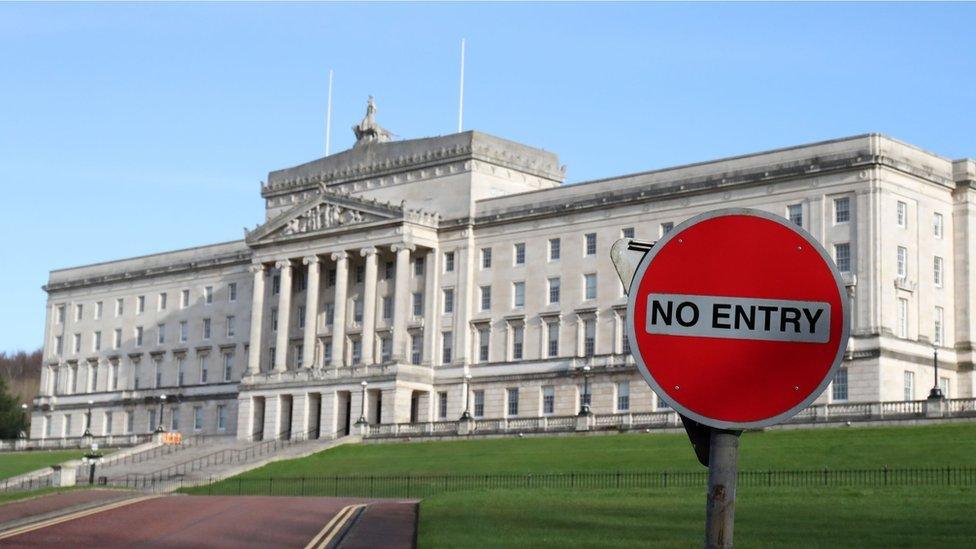Stormont talks: Partial pause over Easter
- Published
- comments
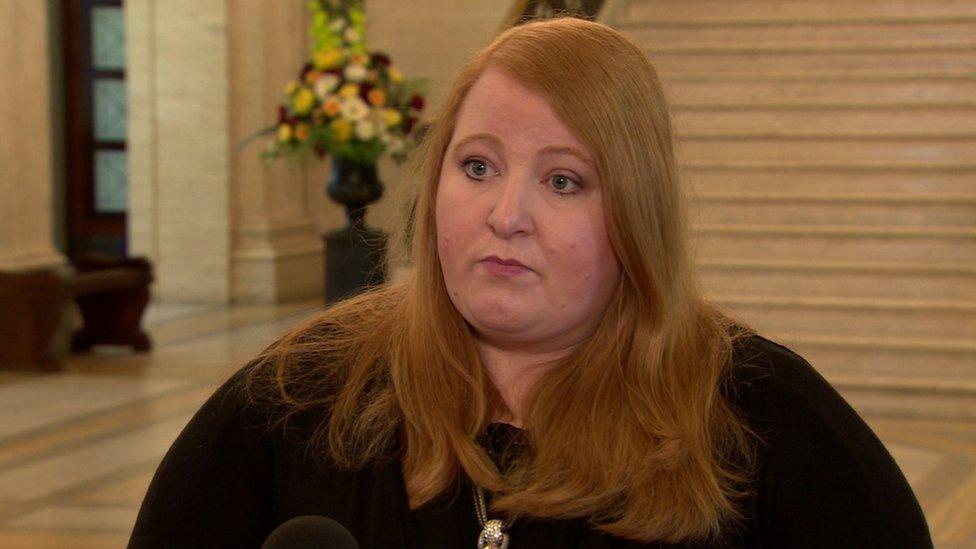
Naomi Long said there was a lack of trust between the main parties
Sources have told the BBC there will be a full day of Stormont talks on Wednesday then a partial pause, with likely resumption after Easter.
Earlier, Sinn Féin President Gerry Adams said it was "decision time for the DUP".
He was speaking as business and civic leaders gathered at Stormont to call on the parties to restore devolution.
Alliance leader Naomi Long said progress had been made but described the chance of agreement as remote.
Snap elections on 2 March resulted in Sinn Féin coming within one seat of the Democratic Unionist Party.
Ms Long said there had been movement on legacy issues and the Irish language but a "fundamental lack of trust" between the main parties was blocking attempts to reach a deal.
'Ludicrous'
"Nineteen years ago yesterday we were able to sign the Good Friday Agreement in Holy Week, we were able to get there on Good Friday and yet we had huge gaps between parties' positions," she said.
"The idea that we would collapse devolution over minutiae like the cost of an Irish language act seems absolutely ludicrous in that context."
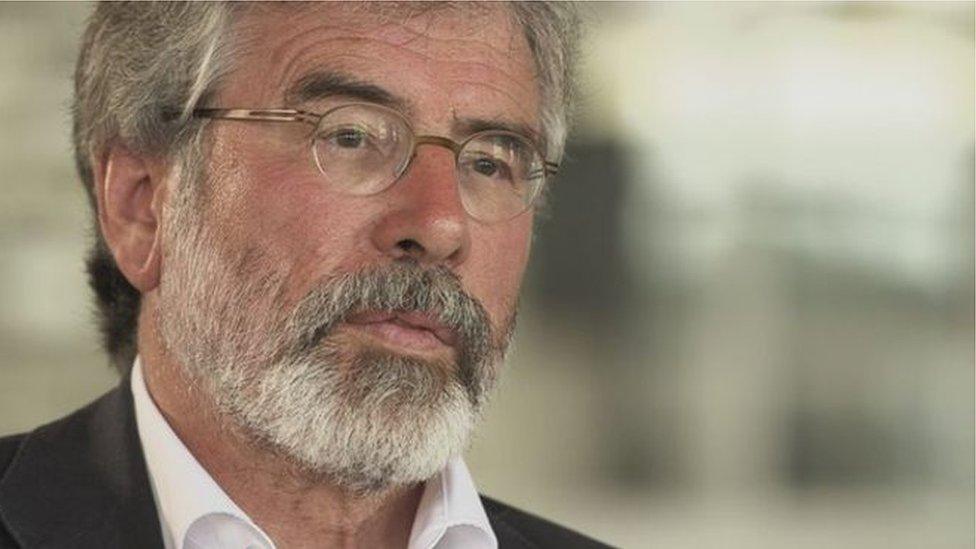
Mr Adams said it was 'decision time for the DUP'
Speaking to reporters, Mr Adams said he believed the message from the recent election was that the majority of people back a rights-based approach to issues, such as the Irish language, same sex marriage, a Bill of Rights and the restoration of a Civic Forum.
The Irish Foreign Affairs Minister, Charlie Flanagan, attended the talks in Belfast on Tuesday.
Ulster Unionist leader Robin Swann said there needed to be "a change in tempo" in the talks.
"The two big parties need to realise there is more to life than what happens in the Stormont bubble," he said.
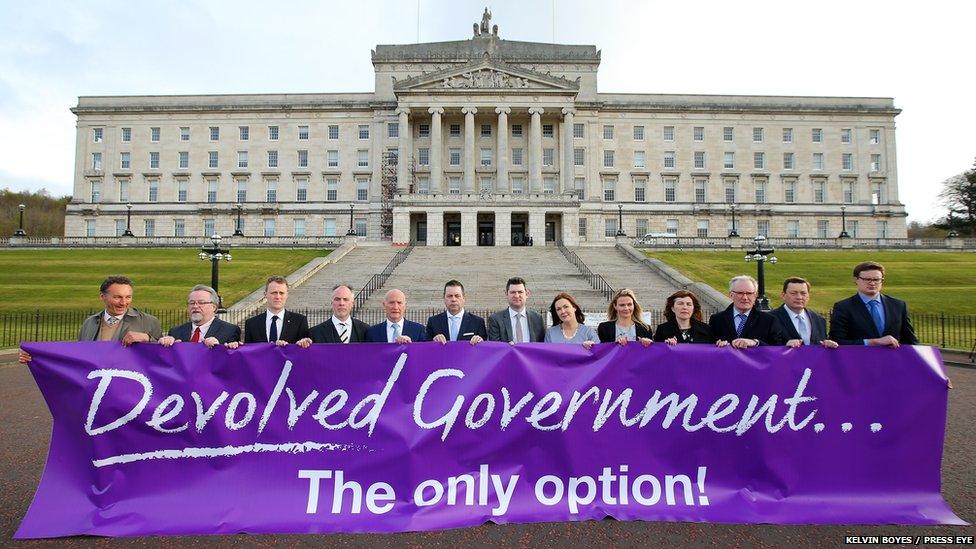
Business and civic society leaders demand a return to devolution
Meanwhile, representatives from business and civic society journeyed to Stormont to deliver an open letter calling on politicians to put aside their differences.
The letter, endorsed by 19 organisations, said stable government was needed to guarantee peace, attract investment, deliver job creation and advance social progress.
NI Secretary James Brokenshire has said he will bring in legislation after Easter to collect rates if there is no agreement.
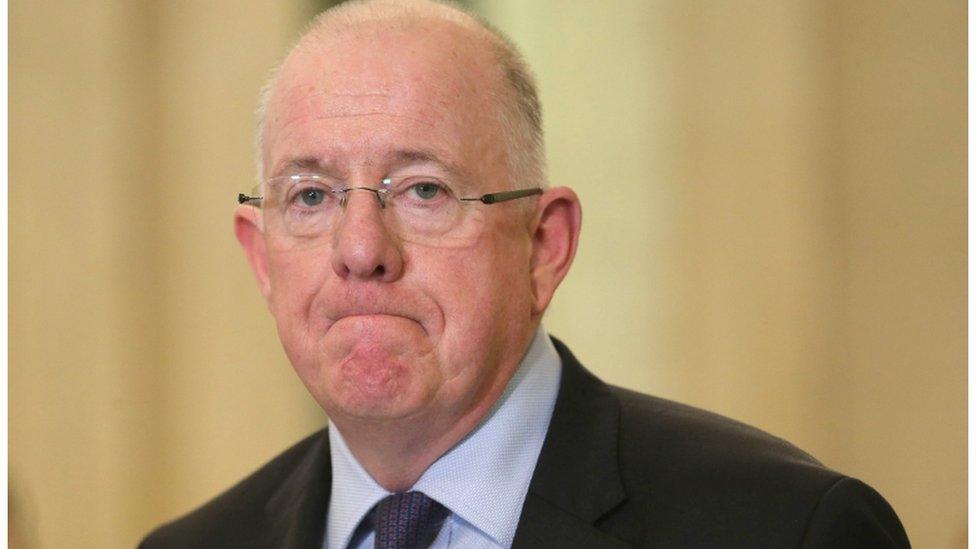
Charlie Flanagan is attending the talks at Stormont
If an agreement is not reached, he is obliged to call a fresh election within a reasonable period or introduce direct rule.
The Northern Ireland Office said on Tuesday that the government wanted to see the parties "come together to reach an agreement to form an Executive", but that if they could not "clearly the UK government has responsibility for political stability in Northern Ireland".
"As the secretary of state has stated, if no agreement is reached following the Easter recess then he would seek to bring forward legislation to set a regional rate to enable collection of the rates to go ahead, and take steps to provide further assurance around the budget for Northern Ireland," it added.
"The government's priority is for parties to continue to engage over the coming days to ensure devolved government is restored as quickly as possible."
Mr Brokenshire recently stated that there was "no appetite for another election".
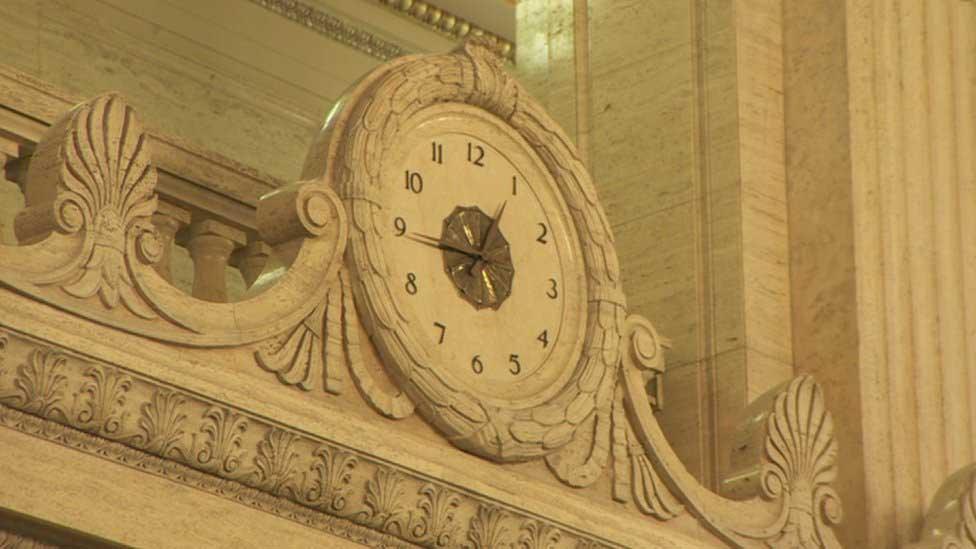
The clock at Stormont's Great Hall is ticking for Northern Ireland's political institutions
Botched energy scheme
Northern Ireland's two biggest parties, the DUP and Sinn Féin, blamed each other for the failure of initial talks.
The political deadlock came after a snap election on 2 March brought an end to Stormont's unionist majority and the DUP's lead over Sinn Féin was cut from 10 seats to one.
Under Northern Ireland's power-sharing agreement, the executive must be jointly run by unionists and nationalists, with the largest party putting forward a candidate for first minister.
Sinn Féin's Martin McGuinness quit as deputy first minister in January in protest against the DUP's handling of a botched green energy scheme.
The party said it would not share power with Mrs Foster as first minister until the conclusion of a public inquiry into the Renewable Heat Incentive (RHI) scheme.
Mr McGuinness died last month at the age of 66.
- Published10 April 2017

- Published27 March 2017
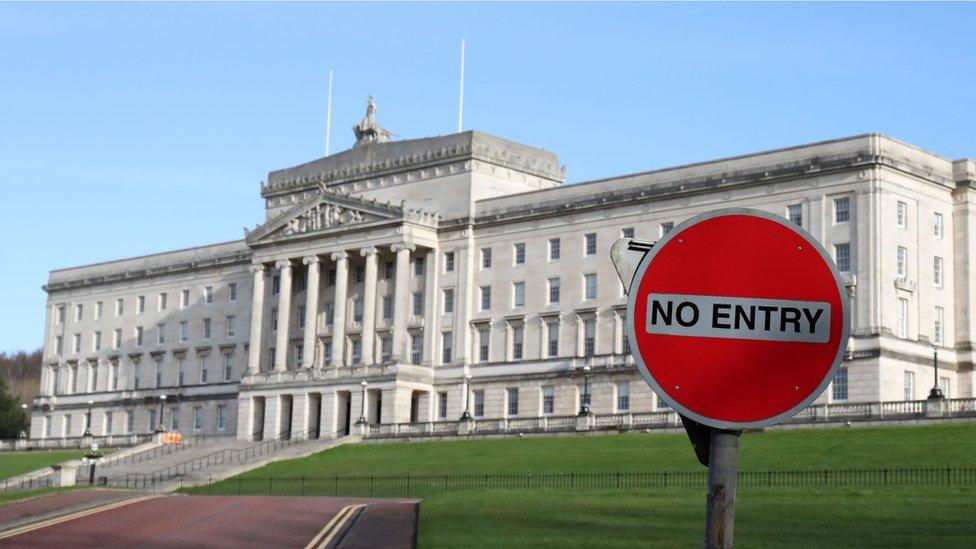
- Published3 April 2017
